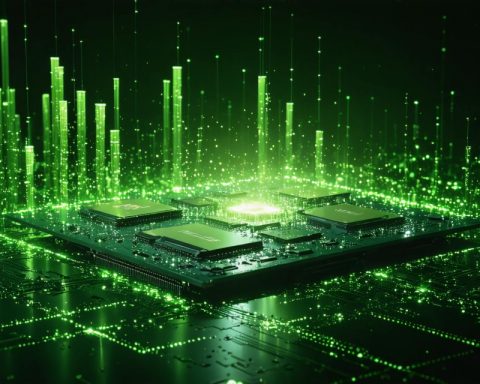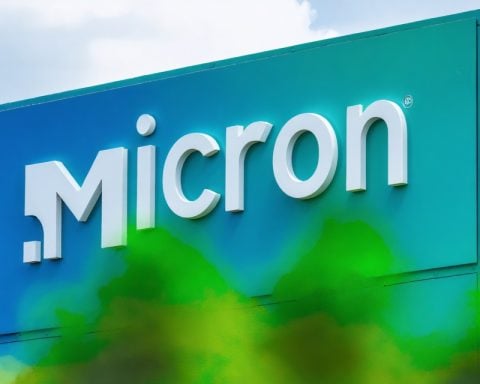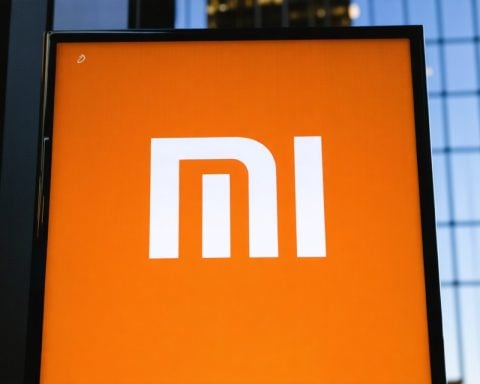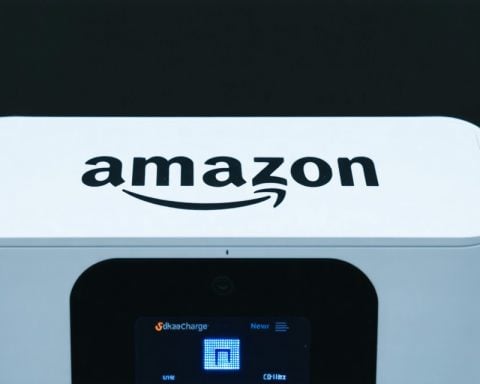Nvidia’s Dominance in the AI Landscape
Nvidia has emerged as a cornerstone in the burgeoning artificial intelligence (AI) landscape, inspiring confidence among investors and analysts alike. Leading investor Dan Ives has forecast that Nvidia will shine brightly in 2025, identifying it as a top stock pick due to its unparalleled influence in the AI sector.
Nvidia’s graphics processing units (GPUs) have become essential for executing complex tasks in AI application development. Analysts suggest that Nvidia commands a market share of 70% to 95% in AI accelerators, making it a formidable player in this space. As noted by industry watchers, the company’s CUDA platform significantly simplifies the process of developing AI applications.
New Horizons with the Blackwell Architecture
Recent innovations such as the upcoming Blackwell GPU architecture promise to propel Nvidia even further ahead. This new generation is capable of achieving tasks up to four times faster than its predecessor, potentially revolutionizing AI execution. With the anticipated ramp-up of Blackwell production, investors can expect notable revenue spikes.
Furthermore, Nvidia’s strategy includes a comprehensive ecosystem that integrates hardware and software solutions, making it a strong contender in developing autonomous robots and self-driving technology over the next decade. With a valuation that many find surprisingly reasonable, Nvidia is positioned for considerable growth, sparking interest among investors seeking to capitalize on the AI revolution.
Societal and Global Implications of Nvidia’s AI Dominance
Nvidia’s ascendancy in the artificial intelligence sector is not just a corporate achievement; it bears significant implications for society and the global economy. As AI continues to reshape various industries, Nvidia’s GPUs facilitate groundbreaking innovations across healthcare, finance, and transportation. For instance, AI-driven technologies herald advancements in personalized medicine, allowing for tailored treatment plans derived from massive data sets, and potentially transforming patient care on a global scale.
However, the implications are not all positive. With such a dominant position, Nvidia wields considerable power over the AI supply chain, raising concerns about monopolistic practices that could stifle competition and innovation. The tech giant’s practices might shape development priorities, potentially favoring projects that align with its business interests over those that serve wider social needs.
On the environmental front, the production and operation of powerful GPUs contribute to significant energy consumption and e-waste concerns. Future trends in sustainability will likely necessitate that Nvidia and similar companies lead the way in creating greener technology solutions to mitigate the environmental impact of their operations and products.
In the long term, Nvidia’s influence signals an urgent need for robust regulatory frameworks to assure ethical practices and equitable access to AI technology. As the global economy increasingly hinges on AI capabilities, ensuring these advancements are socially responsible will be crucial for sustaining trust and promoting inclusive growth.
Nvidia: The Unrivaled Leader in AI Innovation and Investment Potential
Introduction
Nvidia has firmly established itself as a key player in the artificial intelligence (AI) industry, consistently innovating and expanding its influence. As the AI landscape continues to evolve, Nvidia’s unique offerings in GPU technology and its commitment to advancing AI applications render it increasingly attractive to investors.
Market Position and Influence
Nvidia’s dominance in the AI market is underscored by its substantial market share in AI accelerators, which analysts estimate to be between 70% and 95%. This commanding presence stems not only from the robust performance of its GPUs but also from its CUDA platform, which has streamlined the process of developing and deploying AI applications. By simplifying the integration of high-performance computing, Nvidia ensures that developers can leverage AI’s full potential.
Features and Innovations
The Blackwell Architecture
One of the most exciting developments on the horizon is Nvidia’s upcoming Blackwell GPU architecture. Expected to outperform its predecessors by executing tasks up to four times faster, Blackwell could set a new standard for AI processing power. This advancement is anticipated to open new avenues for AI capabilities, impacting sectors like healthcare, finance, and autonomous systems.
Comprehensive Ecosystem
Nvidia’s commitment to building a holistic ecosystem that melds hardware and software solutions positions it strategically for future growth. This approach is particularly beneficial in fields like autonomous vehicles, where integrated solutions are critical for development.
Use Cases
– Healthcare: Nvidia’s technology is instrumental in developing AI applications that assist in diagnostics, patient monitoring, and drug discovery.
– Finance: By leveraging Nvidia GPUs, financial institutions can conduct risk assessments, fraud detection, and algorithmic trading with enhanced efficiency.
– Autonomous Driving: Nvidia’s platforms are crucial for creating reliable self-driving systems by enabling real-time data processing and machine learning.
Pros and Cons
Pros:
– Market leader in AI accelerators with a strong competitive advantage.
– Ongoing innovations that significantly improve performance.
– Wide applicability across various high-growth sectors.
Cons:
– High reliance on a few core products which may pose risks in the event of market fluctuations.
– Intense competition from emerging AI technology providers.
Pricing and Valuation Insights
Nvidia’s current valuation has raised eyebrows, with many considering it unexpectedly reasonable given its vast growth potential. As AI continues to gain prominence across diverse industries, Nvidia is likely to see substantial revenue increases, especially with the anticipated production ramp-up of the Blackwell architecture.
Security Aspects
As AI technologies advance, so too do the risks associated with them. Nvidia is focusing on security measures to safeguard its technologies against cyber threats, ensuring that its AI applications remain robust and trustworthy. This includes implementing security protocols in both hardware and software configurations.
Future Predictions and Trends
Looking ahead to 2025 and beyond, analysts predict that Nvidia will maintain its strong trajectory within the AI market. The integration of AI into everyday applications, coupled with sustained innovations in GPU technology, will likely enhance Nvidia’s market position further.
Conclusion
In summary, Nvidia’s prowess in developing cutting-edge technology and its strategic positioning within the AI ecosystem make it a compelling option for investors. As new innovations like the Blackwell architecture emerge, the company is poised to continue its growth and influence in a rapidly evolving industry.
For more insights into Nvidia’s strategies and innovations, visit nvidia.com.



















